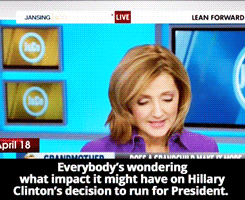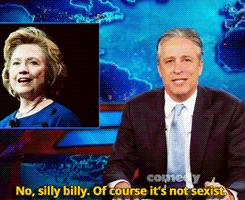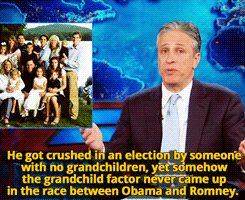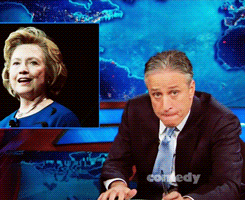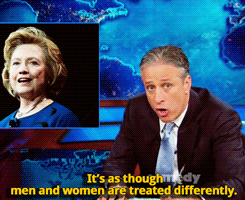[It has been so long since I posted here that I forgot the original concept. But it came to mind today. I noticed I had not posted in a while and I was searching to remember why this blog was here. :) This is of course all quite ironic considering the title.]
I don't usually watch commercials. I do all I can to avoid them. I am probably one of the earlier time shifters. My adventure with VCRs started in 1977. I have told the story before so I will shorten it. My primary goals were to skip commercials and simultaneously shift programs to available time around my school and study schedule. In the early days one would have to fast forward, not scan forward, and just guess blindly where the commercial ended. It took lots of practice.
When they made it easier to skip things with the onscreen scan, which we are all familiar with, life got much better. TiVo introduced the 30 second skip as well as the ability to record more than one channel at a time plus better indexing of shows (which required a notebook for me, with each tape numbered.) When TiVo came around my earlier ideas that television advertising as we knew it would be more or less doomed someday became an inevitable reality.
As new technology has emerged, it is easy for me to see that companies could just use black electronic boxes with proprietary software that forbade people to change the software and commercial content. Next they would have to offer better programming or less commercials for consumers to want to use them. This is the Netflix business model, in other words, with the addition of commercials that are unskippable. In today's world, this is the only way I see that they could effectively save commercial television. When I see Netflix stock tumbling because of the current problem with cable companies not providing the bandwidth (to blackmail them), I see this ability to add commercials as the trump card that Netflix has never played. For instance, they could divide themselves into two services (one with commercials and one without.) That would provide them two pricing structures. Or they could provide content with commercials as extra content on their main feed. This would certainly be something the broadcast networks might jump at. Already they have an Internet presence of providing programming with unskippable commercials. I believe Hulu has used this model as well.
Additionally, the P2P protocol would be a weapon of mass destruction Netflix could easily use. P2P currently runs only pirated material. The ISPs rake in lots of money selling fast lines to people who want to view or deal in pirated material. In fact, a vast majority of the Internet itself consists of pirated photos and videos etc. Facebook, YouTube... etc. Copyright problems are so rampant one would wonder what material would be on the sites if it were not for pirated material.
Netflix running P2P would work much more efficiently for Netflix and for cable it would be a disaster with them doing most of the traffic, up and down. Netflix just recently rolled out this option as a possibility to fight the blackmailing cable ISPs. I have little doubt that that whatever research Netflix has done in P2P distribution methods, it is now being ramped up for final testing.
But, TV Land, the purse snatcher - wasn't that where I started? With all the commercial skipping and the other methods of distribution like DVDs, Netflix, and pay channels things have changed. A great proportion of commercial watchers have run away. It can best be seen on TV Land and local channels. Currently most commercials on standard television are very different from the ones I remember in 1976. The majority of current commercials are slimy ripoffs. There are lawyers chasing ambulances trying to find people who will sue over their auto accident. There are life insurance rip-offs, informercial style rip-offs, and prescription medicine advertisements (do I need to add "rip-off"? I think not.)
Recently, I saw an advertisement for a prescription medicine which was beyond the pale. There is a rule that if you tell the exact health benefits of a product one must also show the problems and side effects of the medicine. At first the advertisers used expensive animated characters to distract while telling of the horrendous possible side effects. After all, these drug commercials masquerade as patient information to justify their existence. But what this commercial did was unconscionable. The swiftly talking narrator was mentioning insomnia and suicide or whatever, while at the same time other completely different side effects were rapidly displayed as text below. There is no earthly way someone without special savant powers would come away with an inkling of the "patient information" being imparted and the pharmaceutical company knew it. [Disclaimer: I have no love lost for big pharma and their role in my life.]
But, TV Land seems to have the gurgling bottom of the sewer sludge commercials as the only viable way to remain operating. And because TV Land consists of old shows like "Gilligan's Island," one big constituency of their audience is senior citizens. I don't know the entire demographics but judging by the commercials one would guess senior citizens make up a large part. All the bottom of the barrel commercials were basically aimed at ripping off the seniors. Some of this of course would have to do with TV Lands younger viewers using DVRs, a foreign technology to many seniors. The remaining people who watch commercials are not the young or the rich. And it seems that for those remaining viewers, only con jobs are profitable.
All of this reminded me of something. I used to work in a branch of the library that was in a shopping center. About three times we had purse snatchers working the area. Seniors were the most popular target. They fight back less. They are the weakest. Whatever the demographics of TV Land the seniors are their easy targets. I'm not sure who would want to DVR this crappy version of Gilligan's Island but if the choice was between this and watching those incredibly numerous commercials, any person with the ability would certainly choose to use that DVR. The commercials are so numerous it is almost impossible to imagine that the episode of Gilligan's Island is anything but vastly sped up and edited. It is actually quite easy to see this. Look how incredibly fast they are talking, but their voices sound the same pitch fast. This is because there is a technology that speeds up the show but lowers the tone of the voice so they do not sound like chipmunks. At first it was used fairly carefully on TBS and the like to squeeze in an extra commercial or two. But it is obvious that market forces have led networks in the direction of a speeding up the show to super levels. I really found it staggering just how many commercials they had in a row. And of course they were just con jobs.
I don't know if this speed mechanism is used on the commercials themselves to tell us all the side effects of medications at lightening speed but I would not doubt it, considering their use of disclaimers in voice and other disclaimers in print at the same time.
My conclusion was that TV Land in particular was a purse snatcher preying on the seniors.....actually worse as at least a purse snatcher probably gets away with far less when successful and has no executives making vast sums of money in charge.
by Michael DeVore
